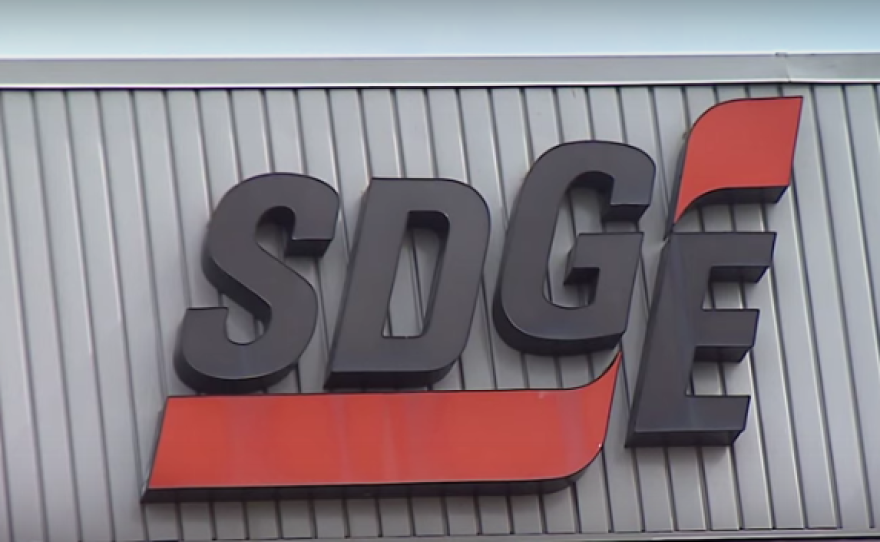The state agency that oversees utilities, the California Public Utilities Commission, has confirmed it is investigating San Diego Gas & Electric for potentially violating a state law on lobbying.
But the utility argues it is doing no such thing.
The law in question is about an alternative energy program called community choice, which would allow cities and counties to bypass SDG&E and decide on their own where to buy their energy from, which could allow them to choose more renewable energy sources.
What is community choice aggregation?
Right now, San Diego Gas & Electric provides power through its system of lines and wires to every city in San Diego County and southern Orange County. SDG&E buys the electricity from a variety of sources, including natural gas plants, hydroelectric dams and wind turbine farms.
If a city goes with community choice aggregation, power would still go through SDG&E’s grid, but the city would buy the energy, not the utility. That allows cities to have more control over how much of their energy comes from renewable sources and the cost for that electricity.
State law prevents utilities from marketing or lobbying on community choice aggregation unless they set up an independent organization that is not funded by ratepayers.
SDG&E's parent company Sempra Energy set up an independent organization, Sempra Services, but that organization has not been completely approved by the state. However, people working for the organization spoke about community choice anyway at a public meeting last month. That is the reason the utility is being investigated by the California Public Utilities Commission.
RELATED: Sempra May Have Broken State Rules By Lobbying On Energy Program
A spokeswoman for the commission said by email Thursday that "SDG&E is not in compliance with the California Public Utilities Commission Resolution allowing them to form an Independent Marketing Division with conditions and consequently may not be participating in lobbying activities that could only be performed by the marketing division."
"SDG&E attorneys have argued that under their particular reading of the Resolution they are allowed to lobby," she said. "The California Public Utilities Commission is investigating the facts surrounding their community choice-related communications."
Amber Albrecht, a spokeswoman for SDG&E, said by email that the utility has "not been advised of any investigation."
She added that "SDG&E is not lobbying" on community choice, so its attorneys aren't arguing that they are allowed to lobby. Instead, she said, their understanding is that the California Public Utilities Commission has approved their independent organization to lobby on community choice.
"California Public Utilities Commission staff issued a letter after that resolution confirming that the plan was approved," Albrecht wrote.
In August, the California Public Utilities Commission gave initial approval to the organization but said it still needed more information from SDG&E.
Then in December, the commission said marketing and lobbying on community choice was suspended because SDG&E had not given enough information to show the organization is independent enough from the utility.
For example, SDG&E has to "conduct training for all its employees and agents, including contractors and consultants" to ensure they follow state laws about marketing and lobbying on community choice, the commission wrote in a letter. While the utility trained its employees, it had not demonstrated it will train contractors and consultants.
Albrecht said that proposed changes to SDG&E's independent organization are being reviewed by California Public Utilities Commission staff, but that doesn't block the organization from operating.
"Staff has no authority to override the California Public Utilities Commission’s resolution," she said. She added that the commission "has no authority" to stop the independent organization "from exercising its First Amendment right to speak, particularly here where the ban would be applied to control the content of Sempra Services’ speech."
An energy trade group called the California Community Choice Association said the California Public Utilities Commission's investigation of SDG&E is not going far enough. The group wrote letters to the commission asking it to compel the utility to prove what it's doing is not violating state law.
"Why should all of us pay the state of California staff to look at this," said Barbara Hale, the president of the California Community Choice Association. "SDG&E should have to prove affirmatively and show they're not violating the rules."
The California Public Utilities Commission spokeswoman did not respond to a question about what the potential consequences would be if it was found that SDG&E violating the lobbying rules.






